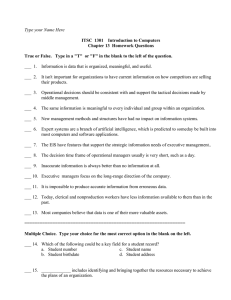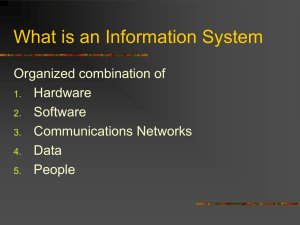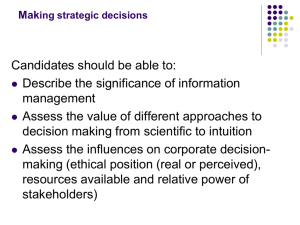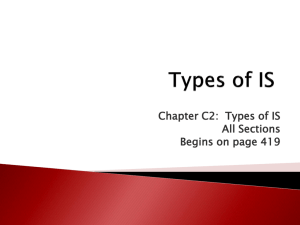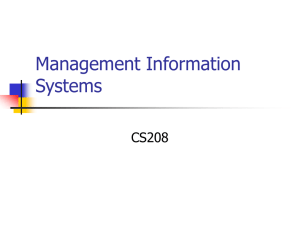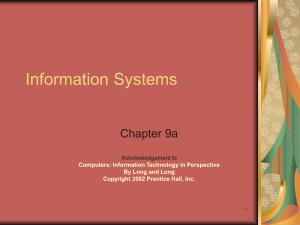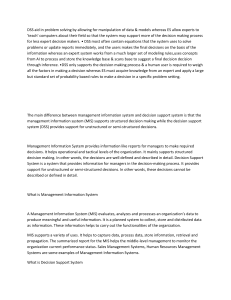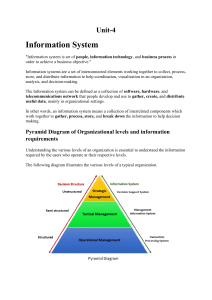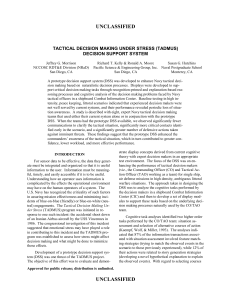Chapter 13 True/False
advertisement
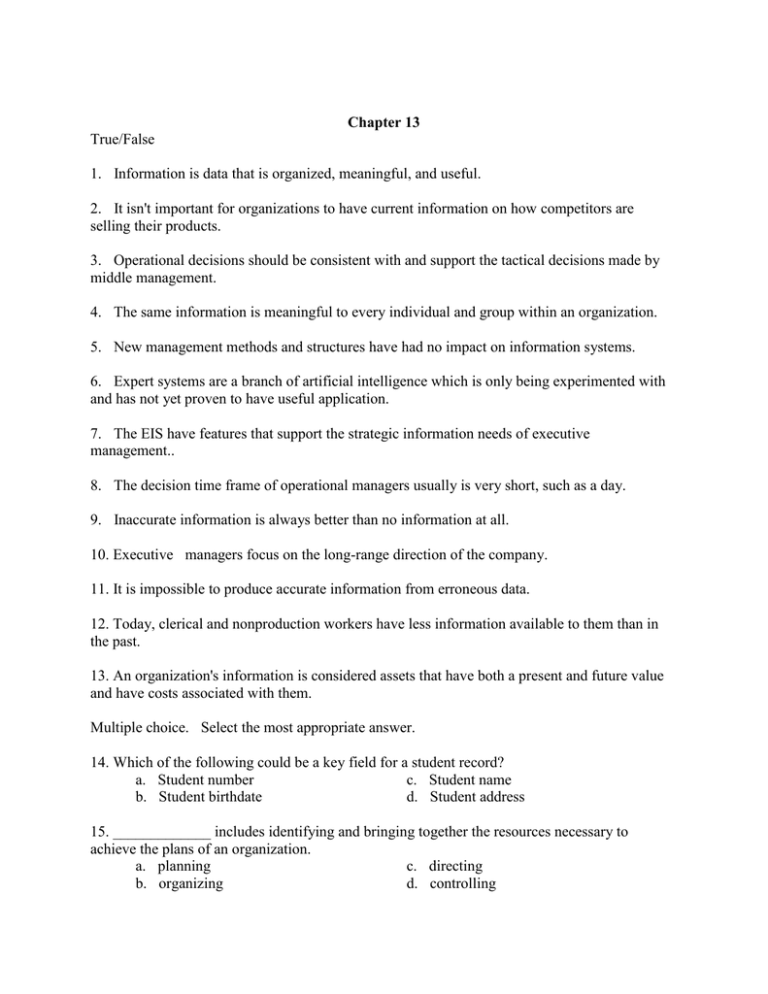
Chapter 13 True/False 1. Information is data that is organized, meaningful, and useful. 2. It isn't important for organizations to have current information on how competitors are selling their products. 3. Operational decisions should be consistent with and support the tactical decisions made by middle management. 4. The same information is meaningful to every individual and group within an organization. 5. New management methods and structures have had no impact on information systems. 6. Expert systems are a branch of artificial intelligence which is only being experimented with and has not yet proven to have useful application. 7. The EIS have features that support the strategic information needs of executive management.. 8. The decision time frame of operational managers usually is very short, such as a day. 9. Inaccurate information is always better than no information at all. 10. Executive managers focus on the long-range direction of the company. 11. It is impossible to produce accurate information from erroneous data. 12. Today, clerical and nonproduction workers have less information available to them than in the past. 13. An organization's information is considered assets that have both a present and future value and have costs associated with them. Multiple choice. Select the most appropriate answer. 14. Which of the following could be a key field for a student record? a. Student number c. Student name b. Student birthdate d. Student address 15. _____________ includes identifying and bringing together the resources necessary to achieve the plans of an organization. a. planning c. directing b. organizing d. controlling 16. ___________ involves measuring performance and, if necessary taking corrective action. a. planning c. directing b. organizing d. controlling 17. Which of the following is not a capability of expert systems? a. Common sense c. speech recognition b. Logical reasoning d. creative responses 18. Senior management will make ___________ decisions for the company. a. strategic c. operational b. tactical d. short-term 19. Garbage in, garbage out best describes which term? a. organized c. useful b. timely d. accurate 20. The information must be relevant to the person who receives it, best describes which term? a. organized c. meaningful b. useful d. timely 21. ____________ are information systems that are designed for the information needs of senior management. a. expert systems c. MIS b. DSS d. EIS 22. A system that helps you analyze data and make decisions is a(n) _________________. a. Operating system c. MIS b. DSS d. EIS 23. The _________ uses a knowledge base and inference rules. a. operating systems c. MIS b. expert system d. DSS 24. A(n) ________ database stores data in tables that consist of rows and columns. a. Object-oriented c. Multidimensional b. Backward recovery d. Relational 25. A(n) _________ is software that allows you to create, access, and manage a database. a. SQL c. DBMS b. GIGO d. CGI
